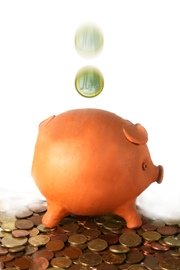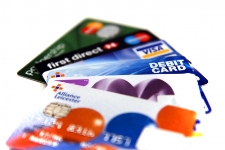|
Money Management for Teens5 Steps to Teenagers Money Management
Money management for teens is horrible, but the answer lies both with your parents and you. After all, “parenting” is a two-way thing – you’re not a baby anymore. Teenagers money management starts with awareness - where money comes from, and how. In most family situations, one or both your parents will have a full time job where you get to ask for a bit of dollar whenever you’re going out, need new clothes, getting McDonalds etc. Now this doesn’t necessarily come around easily – one of you has to make the other aware. What do I mean by that? Either your parents need to give you a sense of perception of the value of how much you’re spending… or you need to figure it out yourself. Next, take action. You need to keep being aware of money, so when you spend stuff, you can account for it. This “skill” won’t just be useful when you’re living on your own with a job, mortgage and burning desire for the latest and greatest fashion (mmm… iPad) – but will stop you from being a shopaholic with little concept of money in the still in yah teens. That may be a tad harsh, but if you’ve ever felt short of cash, it’s probably because you’ve gotten stuck in a money-managing hole and don’t know what happened. It happens to the best of us – even the banks ran out of money in 2009! Not to worry however, because there’s five ways you can become aware and take action so you can handle your money better:
1 - Remember Your Last 3 PurchasesSo I was thinking of getting you to write down everything you spend for a week… but I wouldn’t bother with that, so you probably wouldn’t either. You can get the same kind of idea from just writing down the last three purchases you made. Not separate items – but each time you handed over money to someone or something else (that doesn’t sound dodgy does it? :p). Any food, drink or throw-away item. Any tickets or passes. Anything online, at your corner shop – somewhere close, somewhere far away. Write it down. Yes, pen on paper – do it now. (If you can remember how much the items were - great if you’ve got the receipt - add that too) Now look at your piece of paper. Ask yourself why you bought each thing – what was its value was to you (I had to buy that bus ticket, so I could get home – or – I didn’t really need that shiny new speaker system but it looked pretty cool.). Okay...
2 - If you only had $10 per month, what would you buy?If you don’t use dollars where you live, use an equivalent value – but what would you spend it on? If you couldn’t get any more money than $10 – no working, no begging, no stealing (don’t) or anything else – what would you buy over the ENTIRE month? Write it down. And give yourself one reason why for each item - a good reason.
3 - Get a Steady Monthly IncomeNow, talk to your parents about a fixed monthly allowance. This will make you budget (plan) how much you can spend each month. You should talk about what you should have to pay for (with your allowance) and what your parents should cover. A couple of ideas you could get an allowance for:• Casual clothes• Food and drinks when going out• Throw-away goods – toiletries, chocolates• Top-up credit for your phone• Bus/train fares (Alternatively, a regular job – like a Saturday job – will let you get a regular income.) I have a regular £80/month allowance. Most of that gets spent on food – I buy my own lunch every morning in Tesco – and the rest covers topping-up my phone, bus and train fares, toiletries and gifts. Having an allowance also makes you realize how cutting spending can be beneficial. Once I had my allowance setup, I quickly started taking full advantage of offers at my local Tesco. Half-price pasties made my lunch cost less than a quid – so I had far more to spend on chocolate. That paid off well ;-) There’s nothing really wrong with that. There’s a difference between making savings for yourself and simply being handed too much money – the difference? Making savings makes you think.
4 - Get a Debit Card
A debit card is like a credit card, but it takes money straight from your bank account – not a credit agency like a credit card. It means you can purchase things on your card AND you get to see a written breakdown of what you’re spending money on when you get your bank statements. With cash, it’s hard to keep track of. Plus, its not so safe to be carrying stashes of cash around with you. Although there are risks with having a card, provided you’re careful you should be fine. You can always phone up your bank if you have a problemo...
5 - Start a Teen BusinessThis is my favourite money management for teens method – because running anything “businessy” means you have to be accountable to your numbers. How do you know if you’re making a profit if you can’t make sense of your money?! You need to know how much you start the month with, and how much you end the month with. What’s more, you’ll want to know! Running a business is exciting, and the thought of knowing how much money you’ve made will keep you on top of it all, as well as helping to motivate you. If you’re ready to learn more about running your own teen business, return from money management for teens to Your Teen Business or browse around on the nav bar to the left.
|




